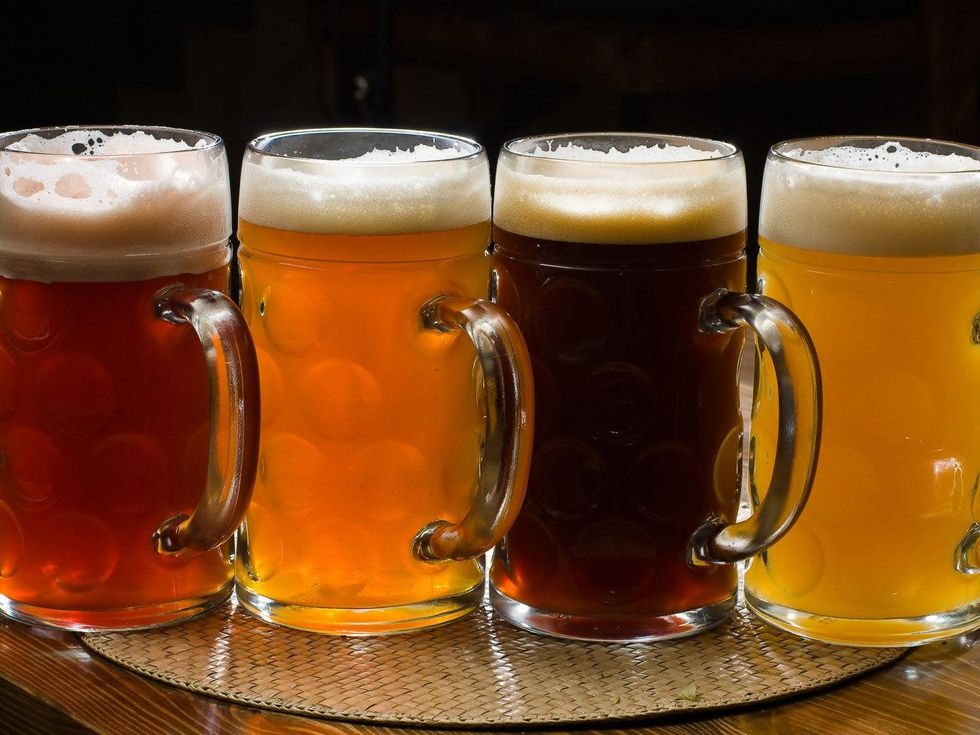Brew News
Dallas senator's craft beer bill is mostly foam according to industry insiders
Craft breweries in Texas are exploding despite rigid state laws limiting their revenue possibilities. But a new bill could squeeze the industry even more.
State Sen. John Carona’s (R-Dallas) introduction of Senate Bill 639 last week left many within the craft industry reeling from the idea that they may no longer have the ability to sell their distribution rights to wholesalers. The bill covers a couple of beer-related issues, but the part that has people concerned is this: “No manufacturer shall … accept payment or agreement to bear any costs in exchange for the territorial assignment of a brand to a distributor.”
Status quo in the brewing industry is to strike such agreements, so the proposed change doesn’t sit well with industry insiders.
“We’re at a point where legislation is getting passed to help us, and this [bill] would put us further into the dark ages than we already are,” says Michael Peticolas.
“This is a bill taking away rights that we currently enjoy,” says Michael Peticolas, owner of Peticolas Brewing Company. “Texas is so far behind most other states with alcoholic beverage laws — that’s what really shocked me. We’re at a point where legislation is getting passed to help us, and this would put us further into the dark ages than we already are.”
Craft beer red tape
Right now, the ability to sell distribution rights provides small breweries with a revenue stream beyond selling kegs to restaurants and bars. Peticolas says he has yet to expand to bottling, but local breweries such as Deep Ellum Brewing Company and Rahr & Sons already do.
For Peticolas, the frustration is that the lost potential revenue would prevent him from growing the brewery at a rate he had hoped for.
“Would I sell my rights tomorrow? No, but I’ve talked about it,” he says. “It would grow my product and my brand, and I could buy more fermentation tanks. It could potentially allow me to get into an area like bottling or fund a bottling line through the sale of distribution rights. I’m not saying any of that would happen if the bill had been presented or not, but it’s aggravating that I don’t have the option anymore.”
It’s no secret among the craft-beer community that Texas’ alcohol laws separating manufacturers, distributors and retailers into three wholly exclusive groups have restricted growth for small breweries, which are barred from opening onsite taprooms and brewpubs.
Texas first adopted the three-tier system after the end of Prohibition. Since then, there haven’t been many alterations to the laws that prohibit beer makers from selling directly to their customers.
Still, craft-beer advocacy groups like Open the Taps and the Texas Craft Brewers Guild have been hopeful for progress in the current legislative session. Sen. Kevin Eltife has sponsored four bills that would allow brewers to sell up to 12,500 barrels onsite annually, which is welcomed legislative action.
Leslie Sprague, director of media relations at Open the Taps, is less than thrilled with SB639 but says that the organization is concentrating on the positive.
“We have the same opinion as the guilds,” she says. “It’s anti-competitive and only helps the middle-tier distributors. But for now we’re focusing on the good bills.”
Bill has much opposition
After SB639 was introduced last week, several articles brought the situation to the public. The response was overwhelmingly against the bill and prompted a response from Sen. Carona that reads in part:
My support of craft beer is well known. Pro-craft beer legislation has passed out of my committee before and will again. I have insisted on bringing stakeholders to the table, created the framework for it, and was one of the first few legislators to respond to the Open the Taps survey. The bill I filed is a step along the path to passage of comprehensive legislation. We are remiss if we do not take the long and wide view on these important provisions.
Carona’s response touches on reach-back pricing, an activity where manufacturers artificially inflate their costs to distributors after the distributors set what they will charge the consumer. “This practice borders on price-fixing and must be addressed,” he writes.
Steven Polunsky, director of the Texas Senate Committee on Business and Commerce, says he found it interesting that nobody was talking about the reach-back part of Carona’s bill.
Reach-back pricing was the focus of a 2010 memo by the Texas Alcoholic Beverage Commission that read no manufacturer “shall ‘fix or maintain the price of which a distributor may re-sell beer ... ensuring that ‘the beer distributor is free to manage its business enterprise, including the right to independently establish its selling prices.’”
But according to Rick Donley, president of the Beer Alliance of Texas, not only does Carona’s bill fail to address reach-back pricing, but it is itself a form of price fixing. “What SB 639 says is that a manufacturer can only have one price regardless of shipping costs, promotionals, shipping strategy, allowances, and regardless of any kind of couponing or rebates,” he says.
Because of this, Donley believes that beer prices will go up, because manufacturers will pick the highest in-state shipping costs and apply them everywhere, instead of measuring it on case-by-case basis, as it is now.
Donley says he has not found any manufacturers, big or small, that are in favor of the bill and that most distributors, including behemoth Glazer’s, are against it. Although Wholesale Beer Distributors is the main distributor publicly backing the bill, there’s talk that the company is, in fact, divided over the issue.
Rick Donley, president of the Beer Alliance of Texas, believes the bill is bad public policy and might even be unlawful.
By the numbers
During Carona’s 2012 senate campaign run, he received $32,000 in donations from the beer, wine and liquor industry, all from four wholesale distribution groups, making it the fourth most generous industry after payday/title loans, lawyers and lobbyists, and telecommunication services and equipment.
From 2004 to 2012, Wholesale Beer Distributors of Texas donated 17 times for a total of $37,500, making them the fourth most frequent and 10th most generous individual group in that time span.
Donley says that the Beer Alliance recommended to Carona that the reach-back pricing and price-fixing statutes from the TABC be codified into state law to remedy that particular issue. He also says the rest of the law is bad public policy and might even be unlawful.
“Similar type pricing schemes have been struck down in seven other states,” he says, “We certainly don’t agree with banning a craft brewer from selling his distribution rights.”
Polunsky believes that the public and brewers alike will understand the bill once all parties have had time to defend and explain their positions.
“There are a lot of ins and outs to it,” he says. “Every fine detail is being discussed at this point. You’re affecting not just craft brewers but also potentially the entire playing field. Texas is a big market, and that raises a lot of interest.”
For now, Peticolas and Sprague are holding off judgment until they further educate themselves on the bill. Sprague says that public awareness of the issue has been great thus far, and she’s hopeful that people will continue to be polite and respectful.
“We don’t want anyone to have a bad taste in their mouth about the craft beer community,” she says.
Peticolas says it’s a long way from September. “Before people get all up in arms about anything that is proposed, it’s about better educating ourselves,” he says. “Am I happy that that bill was introduced? Absolutely not. But there’s more I need to do before I make a final determination.”


